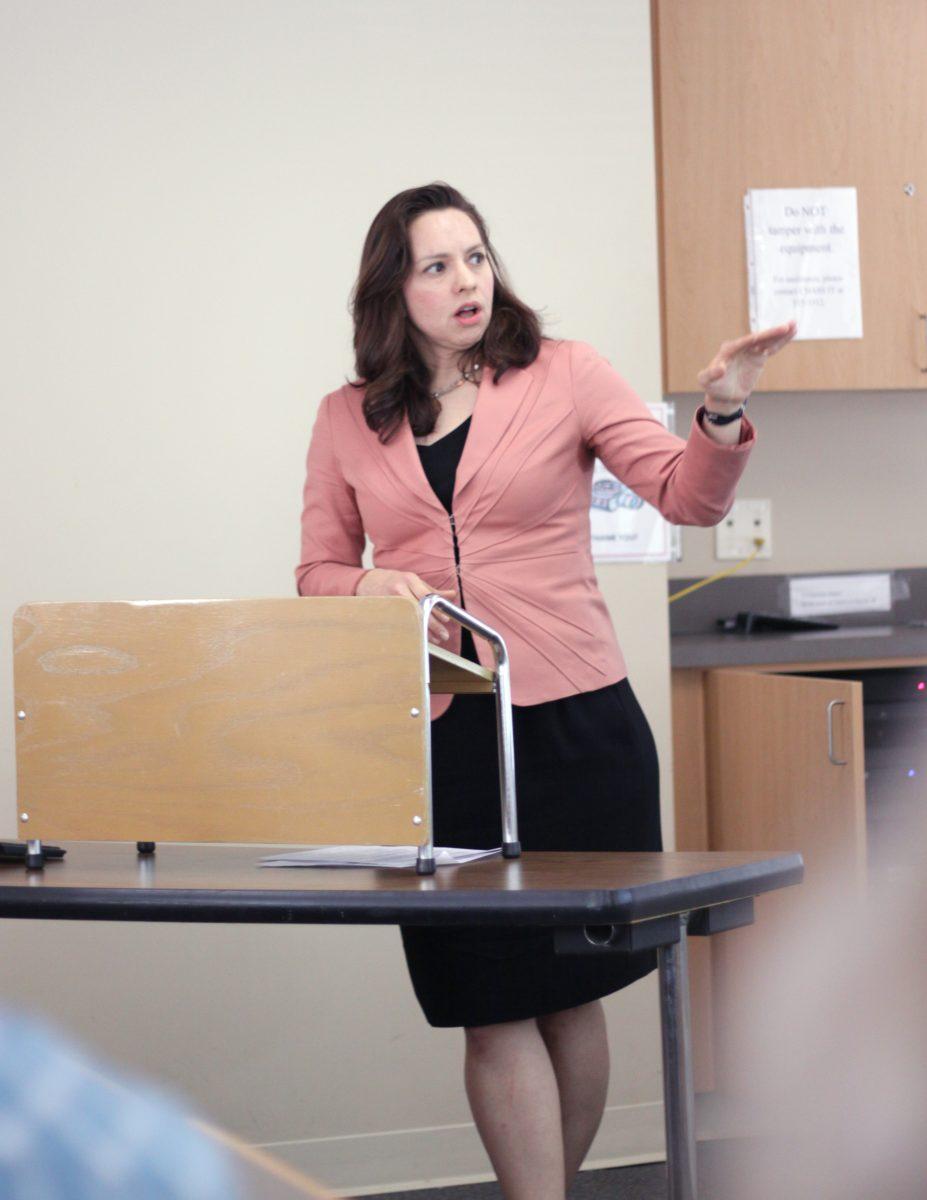Students and faculty members from eight different departments gathered in the 1911 building to meet the next director of the science, technology and society program and discuss the program’s change of direction.
Kathleen M. Vogel, former member of the department of science and technology studies at Cornell University, was the main speaker for the event, which about 40 people attended, taking every single available seat in the presentation room.
Vogel will be the official director of the STS program at N.C. State starting fall semester and will work for the department of political science.
“I think STS can help students become informed citizens about the complexity of these issues of science and technology,” Vogel said. “I think this is something that will be central to education in the University in the future years.”
Vogel talked about the strengths of the current STS program at N.C. State, including the rich and diverse faculty that come from departments all over campus and the fact that N.C. State has such a program.
“This is the only STS program in North Carolina, which creates a unique opportunity to create a special footprint here at N.C. State,” Vogel said. “It would be interesting to see STS here be the flagship for STS in the Triangle area and in North Carolina.”
Vogel then discussed areas in which the STS program could grow and expand at N.C. State, such as introducing First Year College engineering students to STS courses and getting more Jefferson Scholars to select STS as their major.
The location of the Research Triangle Park also provides a unique opportunity for internships, according to Vogel.
“Stanford had unique internship partnerships with Silicon Valley companies like Google or Apple that recognize the need to understand users,” Vogel said. “I would love to see this with the RTP being a natural opportunity right here for internships.”
“One of the really optimistic ideas would be to develop internship opportunities with RTP companies,” said William Kimler, director of the Jefferson Scholars program and associate professor in history. “This is in the land grant tradition of applying our knowledge and good for our students.”
Vogel discussed the possibility of a minor in STS as a gateway to the major.
“It’s less of a commitment to be a minor and some students have transitioned to the major that their minor was, over time,” Vogel said. “That can be another way to get interest in the STS major.”
Vogel talked about some ways to expand the graduate program in Science and Technology Studies.
“I think another area that will be useful to look at is building concentrations to existing graduate programs that look at social, ethical and legal issues,” Vogel said. “You can have an STS-infused set of courses related to this. There could be the possibility of including STS concentrations in science and engineering graduate and Ph.D programs.”








